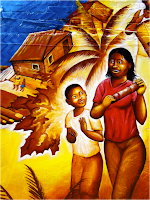The United States Senate approved a fiercely worded resolution that attempts to formally apologize for the "fundamental injustice, cruelty, brutality, and inhumanity of slavery" of the African-American people. It’s strange that their unanimous resolution came only after America elected it’s first African American president, Barack Obama. Members of The House of Representatives are also expected to unanimously pass their resolution as early as next week. The bill which does not require President Obama’s signature reads as follows: ”that Congress acknowledges the fundamental injustice, cruelty, brutality, and inhumanity of slavery and Jim Crow laws that enshrined racial segregation at the state and local level in the nation well into the 1960s." It further reads "Congress apologizes to African-Americans on behalf of the people of the United States, for the wrongs committed against them and their ancestors who suffered under slavery and Jim Crow laws." It also recommits lawmakers "to the principle that all people are created equal and endowed with inalienable rights to life, liberty, and the pursuit of happiness, and calls on all people of the United States to work toward eliminating racial prejudices, injustices, and discrimination from our society." In a step that has angered some African-American lawmakers, the measure takes pains not to fuel the push for the U.S. government to pay reparations to the descendants of African slaves. Congress and Senate acknowledged that a crime was committed – an admission of quilt, however, the resolution does not mention ANYTHING regarding settlement of any claim against the United States or the 40 acres and a mule issue.
Monday, April 5, 2010
Erykah Badu Nude Video – Poor Taste or Smart Marketing?
I recently saw soul singer Erykah Badu's newly released music video, "Window Seat". In the controversial video, she striped butt naked in public at the site of President John F. Kennedy's assassination in Dallas Texas. She is on the street with passerby watching as she takes off her bra follow by her panties and than dropped her completely nude body to the ground as if she was shot from behind. With her body on the ground, it appeared as if blue blood was gushing out of her head onto the concrete with the blood converting into the word “groupthink”. American soul singer Erykah Badu has caused a stir with a music video in which she strips naked in public at the site of President John F. Kennedy's assassination, and falls to the ground as if shot.The Dallas-born entertainer told the Dallas Morning News in an interview that she chose the famous 'grassy knoll' at Dealey Plaza because "it was the most monumental place in Dallas I could think of." She added that that the video was a bid to awaken interest in a 1950s term called 'groupthink' in which a person is afraid to express themselves for fear of being ostracized by the wider public."When I fall to the ground in the video, the word groupthink spills out of my head because I was assassinated by groupthink", she said.
Domestic Violence in the Black, Latino or Afro-Latino community
There are many problems, which face the United States and its citizens today. With the incorporation of modern technologies into everyday life, things have simultaneously become easier and more difficult. Although everyday actions like cooking, communicating, and moving from point a to point have become more efficient, there are a number of side effects which must be addressed. The more modernized things become the more focus shifts away from strong families and relationships. This is in conjunction with other major problems such as poverty, corruption, and a general distrust of officials and government. All these problems branch off and give way to problems that are not as easily combated; problems such as domestic abuse. What exactly is domestic abuse/violence and why is it most often seen in the homes of minorities? “Domestic Violence is a violent confrontation between family or household members involving physical harm, sexual assault, or fear of physical harm. Family or household members include spouses / former spouses, those in (or formerly in) a dating relationship, adults related by blood or marriage, and those who have a biological or legal parent-child relationship. The batterer uses acts of violence and a series of behaviors, including intimidation, threats, psychological abuse, and isolation to coerce and to control the other person. The violence may not happen often, but may remain a hidden and constant terrorizing factor. Domestic violence is not only physical and sexual violence but also psychological. Psychological violence means intense and repetitive degradation, creating isolation, and controlling the actions or behaviors of the spouse through intimidation or manipulation to the detriment of the individual.” The facts that the leading causes (of domestic abuse; poverty, modernization, and corruption) are directly seen in minority communities; they are the ones most commonly affected by these factors. Knowing what Domestic abuse is, it is common to ask yourself why is such a vile act allowed to continue? What types of people would even fathom such thoughts? When presented some facts you would be appalled to see that many public figures are the main promoters and perpetrators. In a recent article published by Vibe Magazine, “Love Hurts”, the common and very public face of Domestic abuse/violence is revealed.
Saturday, March 6, 2010
Afro-Colombian Mural: Currulao y Desplazamiento




Thursday, March 4, 2010
Stereotypes in 2010 ????
Monday, February 22, 2010
What is the Definition of "Being Black"?
Should a black person only buy products created by members of their own race? Fendi, Ralph Lauren and Timberland are not run by blacks, however, their clothing is used as a status symbol in black culture. I bet the majority of BET viewers don't know the companies are owned by whites.Are we playing into the stereotypes by focusing only on black movies that depict blacks in urban ghettos? Why can't we see movies with black presidents? Why don't we go see the movies where black people play positive roles? Movies like "Babs," "Bootie Call" and "Player's Club" make more revenue from blacks than more positive movies. By supporting these movies, we typecast our race in roles that depict black stereotypes.W.E.B. DuBois said it well in The Souls of Black Folk. Du Bois, the first person of African descent to receive a Ph.D. from Harvard, a prominent civil rights leader of his day, spoke of a "duality" with African-Americans consciousness. This duality was a result of being "black" and "American," torn between two entities, one in which you are supposed "to have certain unalienable rights" and the other in which you are "perceived through the veil" as less than. The problem is not just in the language. It goes much deeper. A word without meaning is just that, a word. A meaning without association to something tangible is just a meaning. The issue comes into play when associating the meaning of the word to something tangible, and, most important, associating the meaning to a human being. As the unknown poet said, illustrating how so many others feel: "But in his mind it wasn't lost, the one undeniable fact/That in a land of justice for all, he always would be BLACK."
Skin Deep Racism
"All Black People Need is Vaseline, Watermelon, Baby-oil, Hair-grease, Fried chicken, and Booty."Huh???
Stereotypes of African Americans are generalizations about the behavior of African American groups or individuals. Developed in American culture since the colonial years of settlement, particularly after slavery became a racial institution that was heritable. Historically some African American stereotypes labeled African Americans as ignorant, uncivilized and simple-minded. These African American stereotypes created negative stigmas for African Americans and since then these African American stereotypes have been upgraded and unfortunately expanded. The current African American stereotypes include criminal, poor, athletic, religious and musically gifted. Though some of these African American stereotypes seem to be positive, it does not make the practice of perpetuating these African American stereotypes right. African American stereotypes are often times used to mask real issues. For example: it is said that is twice as hard for an African American to get a job, when the fact is that these men are severely marginalized. Even though African American stereotypes seem to have quite a negative influence upon the young African Americans, African American stereotypes can be used in positive ways to tell historically of where the African Americas are coming from and where they needs to go.
http://www.ibeatyou.com/competition/8f422a/favorite-black-stereotypes
Stereotypes in Popular Culture
Thursday, January 28, 2010
Eliminating the Thin Line that Divides the Colored People

Urban Dictionary states that Howard is an “Excellent place of study for those in favor of the uplifting of fellow black people, and place of preparation for excellence in the real world, as well as grassroots in the nation's capital for matchless career opportunities.” With knowing that Howard is an HBCU most other races don’t consider attending. We are then surrounded by an immense number of people who are African American. People who come from mostly black areas don’t get the chance to interact with and learn about other communities, Native Americans and Latinos. The same for the Latino and Native American communities, they have limited interaction with the people of the African American race. It is imperative that all three races learn about each other. It would help to steer from stereotyping and misunderstandings. Howard University produces students who will go forth into the world breaking the mold.
